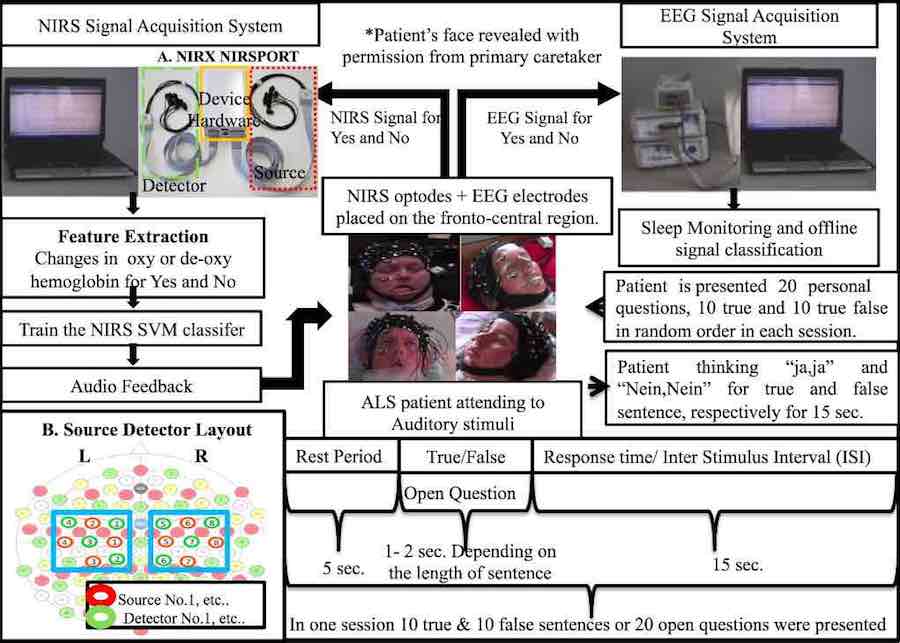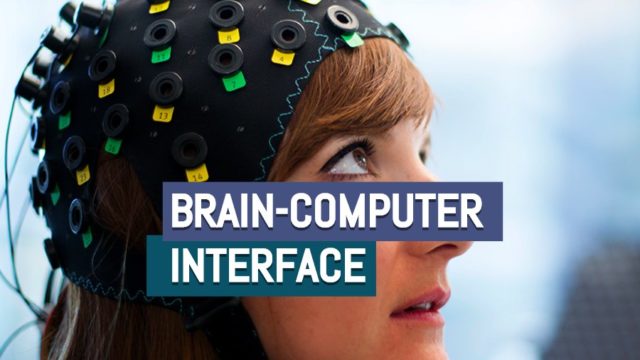Short Bytes: A group of European researchers has devised a brain-computer interface that helps in communicating with the patients in locked-in state. The device fits on the patient’s head and reads brain’s electrical signals and blood flow. In the tests, the patients responded correctly to the questions with definitive answers. The researchers hope to improve the interface in future and benefit the humanity.
rain-computer interfaces (BCI) have been a subject of great interest in the recent years. Many tech companies and universities are spending millions to develop a fully functional BCI that can read the human brain and makes many critical jobs easier.
One of the major applications of BCIs is expected to be seen in the health sector, where it can improve the lives of people suffering from different kinds of locked-in syndromes. For those who don’t know, patients suffering from locked-in syndrome are paralyzed, losing the ability to communicate with the world.
Now, a team of researchers in Europe has designed a computer that interfaces with brain and communicates with the people who have lost all voluntary movement.
IT MEASURES ELECTRICAL WAVES COMING OUT OF THE BRAIN & BLOOD FLOW
The patients were asked personal questions with simple answers “Yes” or “No.” When the patients were shown “I love to live” statement, three out of four replied yes. They also replied yes when asked “Are you happy?”
In the tests, for the questions with a definitive answer, patients answered the right answer seven times.
This brain-computer interface is worn by the person like a swimming cap. It measures the electrical waves coming out of the brain and blood flow using a near-infrared spectroscopy and electroencephalography, according to MIT Tech Review.

Devices like these can surely improve the lives of patients suffering from various critical complications. We hope that this technology is further developed for broader applications.
Did you find this brain-computer interface fascinating? Don’t forget to drop your views and feedback.
Source: Fossbytes

Comments